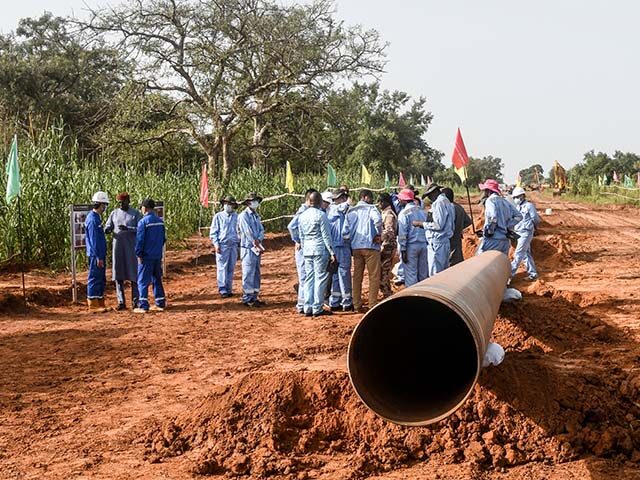China’s state-owned oil company CNPC, the China National Petroleum Corporation, has signed a $400 million deal with the military junta that controls Niger, providing a much-needed infusion of cash after the coup damaged relations with Niger’s previous big oil customers, the United States and France.
The memorandum of understanding (MoU) signed on Saturday appears to involve China loaning the junta a huge amount of money to improve its oil infrastructure, although the exact details of the agreement have not been made public.
CNPC is already working on a pipeline project in Niger through one of its subsidiaries, PetroChina. The pipeline is designed to link Niger’s Agadem oil field, which also features prominently in Saturday’s deal, with the port city of Cotonou in Benin.
Niger has considerable oil resources, but limited ability to exploit them. It currently has only a single small oil refinery that can process about 20,000 barrels per day, most of which is consumed in Niger or neighboring Nigeria.
Analysts say Niger has reserves of at least 957 million barrels, and if exploration into the largely untapped eastern basis of the country proves fruitful, it could soon offer more than triple that amount.
Niger’s civilian government was overthrown by military strongman Gen. Abdourahamane Tchiani in July 2023, replacing the Western-friendly administration of ousted President Mohamed Bazoum with a much more hostile “National Council for the Safeguard of the Fatherland.”
The junta sought to expel Western forces and developed difficult relations with various multinational organizations, such as the Economic Community of West African States (ECOWAS), which at one point threatened to invade Niger to restore civilian government. Niger formed a bloc with the juntas in Burkina Faso and Mali to resist external efforts to restore their elected governments.
The Niger junta announced the end of counterterrorism cooperation with the United States in March, putting the security of the vast and unstable Sahel region in serious doubt. Most troops from former colonial power France had been expelled by the end of 2023.
China, of course, does not care about democracy, political freedom, or human rights, so it is happy to do business with the Niger junta. The South China Morning Post (SCMP) on Wednesday quoted analysts who suspected China worked out a deal with Niger similar to its arrangement with Angola, which took billions of dollars in loans from Chinese banks to finance reconstruction after its long civil war ended in 2000, and has been repaying those loans with oil assets ever since.
These financial arrangements have been criticized as debt traps, as China lets Third World political elites rack up gigantic debts their countries can never repay and slowly takes over valuable assets like ports and oil wells as collateral.
The SCMP noted that Africa Development Bank president Akinwumi Adesina has been particularly critical of China’s practice of collecting oil and other natural resources as payment for loans, denouncing the arrangements as “non-transparent, unfair, and corruptible” schemes that “complicate debt resolution and mortgage the future of countries.”
George Washington University professor David Shinn, who specializes in China-Africa relations, said China’s new deal with Niger was a little surprising because Chinese oil companies have simply been buying oil from Niger for quite some time and most African nations are trying to move away from the Angolan financing model. China has already invested $4.6 billion in Niger’s oil industry and owns two-thirds of the vast Agadem oil field.
China might have taken its investments in Niger up a notch because ECOWAS sanctions imposed after the coup have been lifted for humanitarian reasons, so oil exports from Niger can begin on a massive scale. China could also be eyeing Niger’s abundant supply of high-grade uranium, which France purchased for its nuclear power plants in happier times, and it might even see Niger as a good prospect for building another overseas military base, like the one it established in Djibouti in 2017.
“China is a great friend for Niger, we can never say it enough,” declared the junta’s prime minister, Ali Mahaman Lamine Zeine, who also serves as finance minister.
“It must be remembered since the beginning of this great oil adventure, China has always been at the side of our country and today it is proven that at such crucial moments, we could obviously manage to request an advance, these are Niger’s rights, and we will give ourselves all the means to repay them,” Zeine said when announcing the MoU, in an effort to rebut criticism of China’s debt-for-oil swaps.

COMMENTS
Please let us know if you're having issues with commenting.